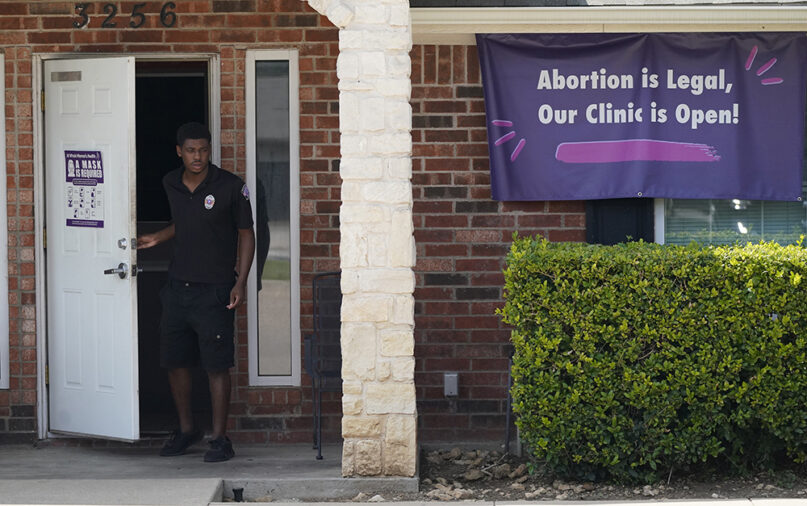(RNS) — I once had to counsel a woman to get an abortion.
Years ago, I was the rabbi of a congregation in greater Kansas City. I knew this woman had preexisting health issues and struggled to take care of the children she already had. Without sharing any other personal details, it was clear to me another pregnancy was going to push her over the edge.
Judaism teaches that potential life is sacred. Nevertheless, our religion also teaches that potential life is not the same as actual life, that a fetus is not a human being. This is directly derived from Scripture. Therefore, even during labor, the pregnant woman’s life has precedence over the life of the fetus. And if we have reason to believe a pregnancy will be a serious threat to the woman’s well-being, whether that be mentally, physically or otherwise, then she will be counseled to abort the fetus, and to do so in a way that maximally protects her own health.
Many books have been written about this, but these are the rules that guide Jewish law and those of us who seek to fulfill it in the practice of our religion. Each case is unique, but the principles remain the same. We would never celebrate the termination of potential life, but neither would we regard it as automatically forbidden. As my doctoral adviser, Rabbi Byron Sherwin, put it, “Judaism is neither pro-life or pro-choice. It depends on the life and it depends on the choice.”
Thus, when this woman came to me for direction, I told her not that she could have an abortion, but that she must have an abortion, that the God of my understanding would want her to do it.
My action would likely be considered a violation of SB 8, the new Texas law making it illegal to assist someone in pursuing an abortion. Thus, this law is a restriction on the practice of my religion. And it would likewise impose a religious standard upon anyone from any religion who believes abortion is not always the evil our state officials believe it to be.
This law cannot stand forever.
I am 70 years old, now working as a rabbi part time. It’s not likely many pregnant women will come to me for counseling about whether they should have an abortion. (And, of course, it is their right as Americans, should be their right, to make that decision for themselves, irrespective of whether I or other clergy or Texas legislators agree with it.)
But if they do, and I believe Judaism would require them to have an abortion, I will absolutely defy the laws of the state of Texas and counsel them to do so. I may be breaking the law just saying this publicly, encouraging others to consider some abortions to be not only permitted but mandated. I stand with the more than 1,000 other members of clergy who participate in the National Council of Jewish Women’s Rabbis for Repro campaign that encourages us to speak, teach and write about reproductive justice in the United States and in the Jewish community.
I don’t relish the thought of being sued by some “bounty hunter.” But you know what? Jews have suffered for the right to practice their religion before, and probably will again.
So go ahead, Texas. Come and get me.
(Rabbi Danny Horwitz has been a Conservative rabbi for over 40 years, serving congregations in Galveston, Kansas City and Houston. He is a member of National Council of Jewish Women’s Rabbis for Repro campaign. The views expressed in this commentary do not necessarily reflect those of Religion News Service.)





